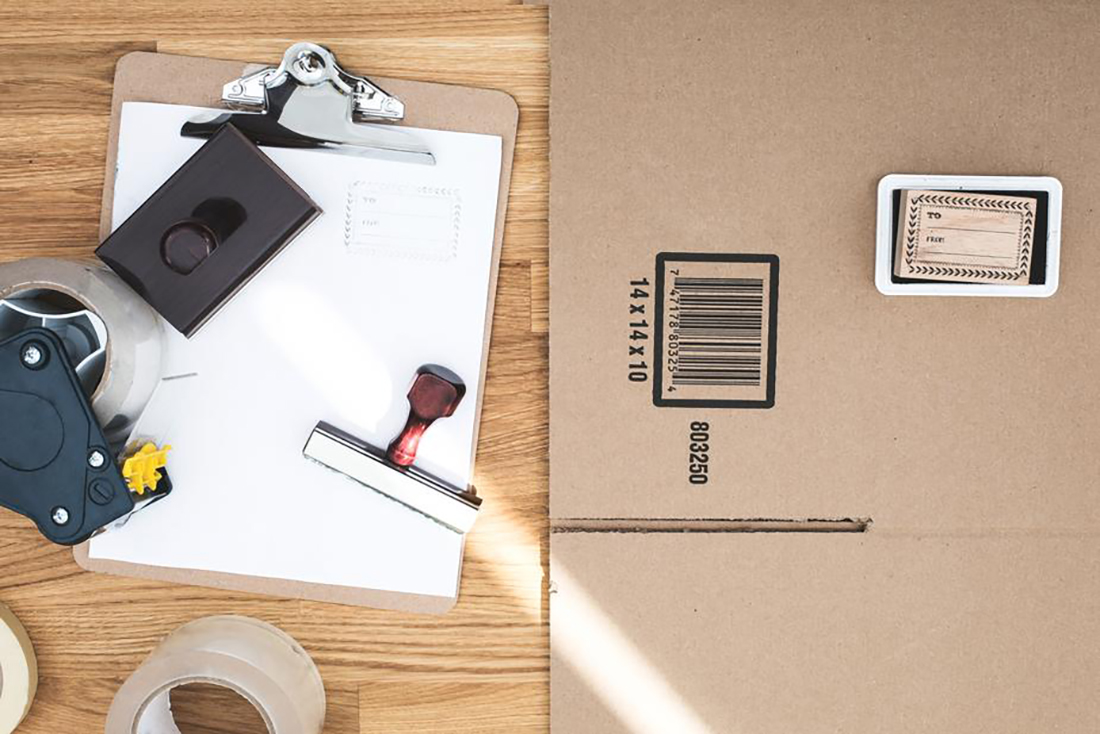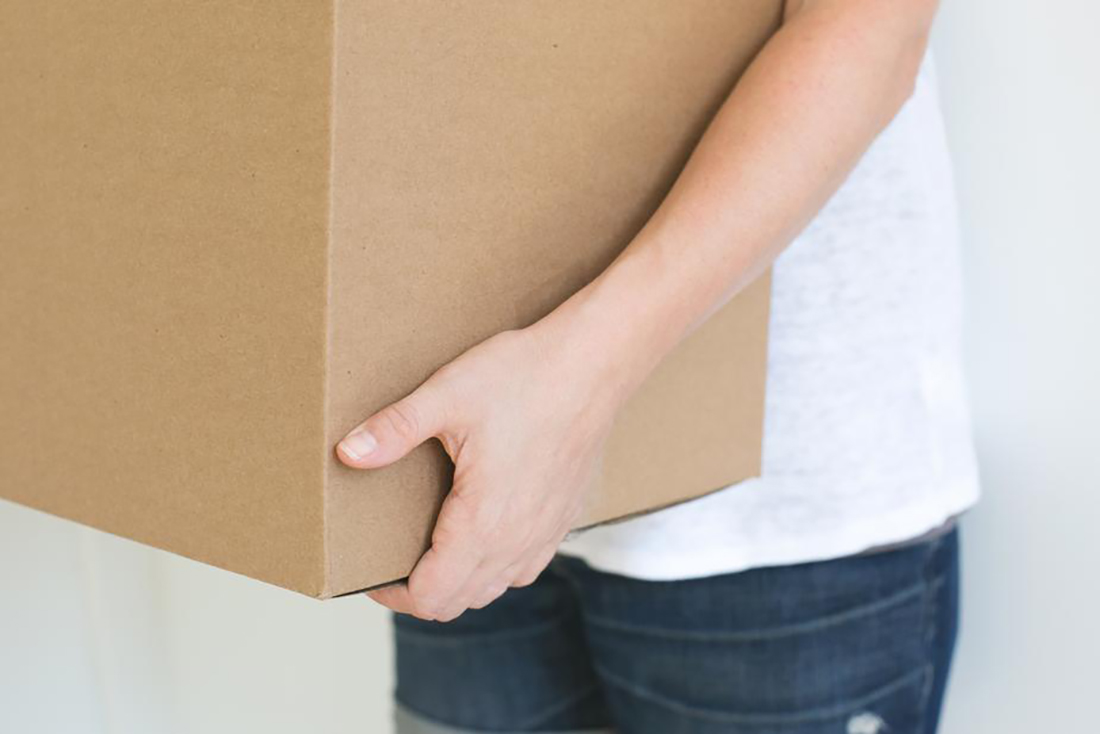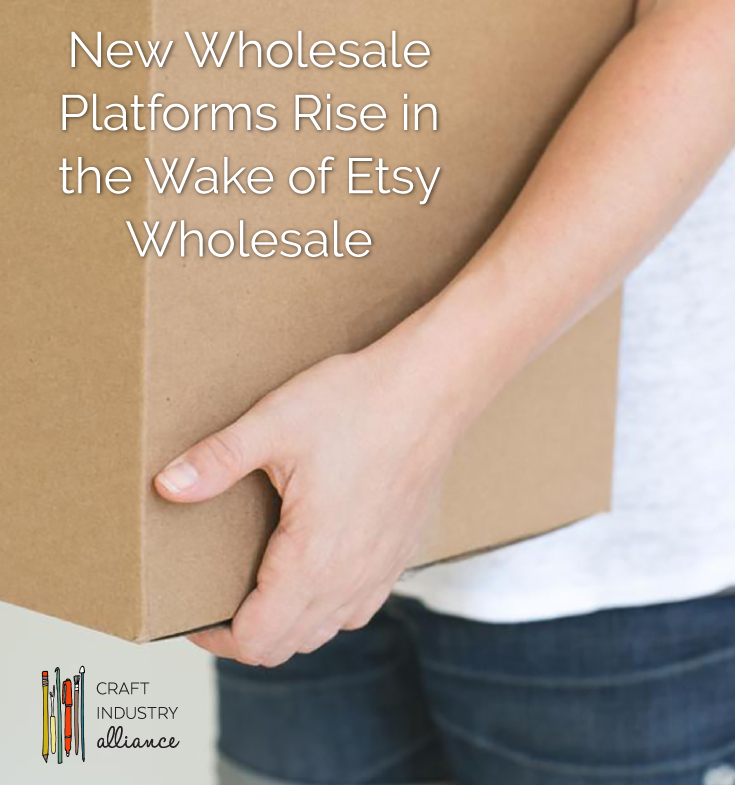
Etsy recently announced that they would be shuttering their Wholesale platform at the end of July due to low demand. “Today wholesale represents a very small part of our overall business,” Etsy said in a statement. “Of our nearly 2 million sellers, only 5,000 of them are actively selling on Etsy Wholesale, and only a small fraction of those sellers sell more than $10,000 a year through the wholesale platform.”
Etsy Wholesale had a mixed reputation among retail store buyers. Some enjoyed browsing the curated selection of makers and felt that on the whole, makers on Etsy Wholesale were professional and ready to wholesale their work, leading to fewer issues with turnaround time and fulfillment. I also heard buyers compliment the ease of Etsy Wholesale’s online PO process, which helped streamline the process with fewer back-and-forth email exchanges. Other retail shop buyers complained that they prefer to order directly from the makers, and that Etsy didn’t offer much support as the middleman in the transaction.
Artist Susie Ghahremani was among those who voiced their disappointment in the closure. “If their reason for closing Etsy Wholesale is that only a small percentage of sellers make over $10k, wouldn’t that be logic for closing Etsy.com altogether?” Ghahremani wondered. Part of why this platform was valuable to makers is that it represented an affordable way to reach retail store buyers — many of the makers on Etsy Wholesale are not prepared to do a traditional wholesale trade show in order to grow their businesses.

While the launch of Indigo Fair was rocky — one retail shop buyer I spoke to complained of mismanaged charges and confusion with shipments — Indigo Fair seems to be improving its reputation by improving the user experience and hosting talented makers on its site. Much in the way that Etsy Wholesale offered a curated experience, Indigo Fair hopes to entice retail buyers by recruiting a wide variety of makers with professional wholesaling experience and refined product assortments. Additionally, they’re actively looking to add home decor and gift brands in the immediate future.
Technically, nothing is stopping store buyers from reaching out directly to buy from makers they discover on Indigo Fair, but with offers like free freight on opening orders, plus lines of credit available, Indigo Fair is hoping to hold onto buyers by offering a simple, curated place to shop.
Another wholesale platform, Hubba, does not focus on handmade businesses or artists, but they do boast an enormous reach on their wholesale platform: over 20,000 retail store buyers are signed up to buy. Hubba offers up customized suggestions to every buyer (powered by machine learning and internal algorithms), meaning that your goods are more likely to be seen by a retail shop buyer who is interested in your product category. Not Ketchup, a brand of artisan-made condiments, shared that they’ve, “seen great success on Hubba,” and highly recommended the platform to other makers looking for replacements to Etsy Wholesale.
SKUE, Faire, and IndieMe are all maker-driven wholesale platforms in a similar vein to Etsy Wholesale. Faire publicly displays available merchandise, which may be an incentive for buyers who don’t want to sign up just to browse. SKUE and indieMe, like the majority of wholesale platforms, require retailers to register before browsing available products. Each platform has a different look and appeal, and likely draws a different style of buyer. Consider comparing platforms to determine which is most likely to interest your ideal buyer. Some wholesale platforms are even rising from the ashes of Etsy Wholesale’s demise: Stockabl is a brand new marketplace for retailers to discover handmade items which launches on 7/31, Etsy Wholesale’s last day.

CreativeLive offers online classes for makers who are interested in breaking into the wholesale market, including Get Ready for Wholesale with Kristen Rask, owner of indie boutique Shmancy in Seattle. Wholesale Business for Crafters, another wholesale series on CreativeLive, features classes with Megan Auman, who runs a successful wholesale jewelry business, and Meg Hunt, founder of Tradeshow Bootcamp.
For designers and artists who want to create their own independent wholesale platform as an extension of their main e-commerce site, there are plug-ins for WordPress (like WooCommerce) and Shopify (Wholesaler or Wholesale Hero) to create a wholesale site — Aeolidia also has tips for makers who want to take this route. For makers who specifically need help researching and finding shops that are a great fit for their work, there’s Wholesale Matchmaker from Lucky Break Consulting. For a monthly subscription fee, they facilitate the store discovery and connection process, saving research time and hopefully increasing your traction in getting new accounts. Now In Store offers a customizable linesheet and catalog maker, so you can reach out to store buyers directly with your wholesale product offerings.
There are lots of paths to growing a wholesale business as a creative business owner, and new resources (and even wholesale platforms!) are popping up all the time, even as Etsy Wholesale exits the market. Though the wholesale landscape is in flux, one thing doesn’t seem to be changing: the demand for high-quality, artisan-made products. As e-commerce continues to transform the retail landscape, brick and mortar shops continue to look to indie makers and artists to stock their shelves with unique products.

Erin Dollar
Contributor
Erin is the textile designer and artist behind the home décor company, Cotton & Flax. She licenses her surface designs for fabric, home décor, stationery, and other clients. She’s also a teacher, writer, and enthusiastic advocate for small creative business owners. She lives in San Diego, California.


Thanks for the mention, Erin! This has definitely been a hot topic for our community!
I design patterns for quilted wall hangings. I sell to both retail and wholesale customers, although my website is only set up for retail sales. I do not have a distributor, so my wholesale customers have discovered me at Quilt Market in Houston and through personal calls, shop owner referrals, and quilt show vendors. Is/are there one/some of the businesses listed above that would fit my needs for either type of sales? Any suggestions that I can follow up on would be greatly appreciated. Thank you. Anita Bradshaw/ Another By Anita/ abcounts@eastex.net
Tundra platform is awesome, especially for the international market. No commission nor credit card processing fees. Free shipping if qualified.
Another new platform that is growing very fast is Hello Abound or Abound. They’ve been offering $200 credit and free shipping but it’s about to expire (5/31/20).
The last one that just starts is Boutsy that offers long payment terms.
YaY Novelty offer wholesale on all platforms and currently have a lot of promotions – check our wholesale page at yaynovelty.com
Great article and list of alternative to Etsy’s Wholesale Suppliers.